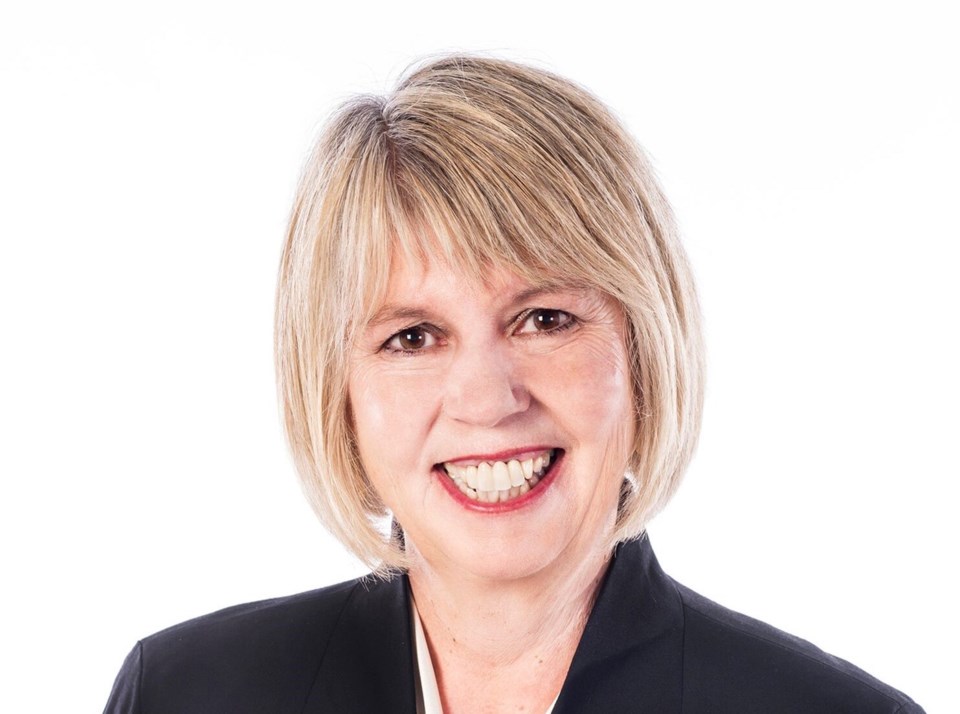For several weeks now, the most intriguing person in Vancouver politics has been Adriane Carr, the third-term Green Party councillor contemplating ascension to mayor.
For no one else has such capacity to disrupt the crowded October contest, whether it’s to win it herself or hand it to someone else.
Carr has budged from her 2018 seriously-no-not-me stance on running for mayor to a 2022 seriously-possibly-maybe-me posture. Even if she seems roughly aligned ideologically with Mayor Kennedy Stewart, one councillor told me Carr has been clear that she doesn’t relish serving another term under him. Running against him would solve that, one way or another.
Carr has been the largest council vote-getter for the last two elections. She has worked the city as well as anyone in her three terms, has made far more friends than not, and would be an instant contender for the prize. That she would think at this stage to join a congested field of four other aspirants to unseat Stewart is itself an indictment of the mayor. That someone only smallish policy steps apart on paper would contemplate challenging is quite the comment.
Carr chose to talk last week to the Globe and Mail and selected an odd issue as the driver of her decision on whether to enter: the city’s response to climate change. The former provincial Greens leader thinks Stewart hasn’t done enough.
That has the whiff of a convenient justification, a plausible vector into the race, but surely there have to be deeper reasons. If there aren’t, she would be wise to stick to council, because there are least a half-dozen issues more pressing and relevant to municipal politics upon which to base a candidacy and upon which to expect a battle as ballot box issues – housing, street safety, policing, taxes, the Downtown Eastside and city services for starters. She would need a platform with those howling problems in mind.
Still, her presence would pose for Stewart his most serious problem yet in securing a second term. Where in 2018 a relatively unknown Shauna Sylvester pulled in more than 35,000 votes so Stewart could only eke out a 757-vote victory over Ken Sim, Carr’s campaign would probably yield a larger tally.
The race dynamics have been skewed in Stewart’s favour for some time, mainly because none of the four principal competitors are at this stage serious threats to snag the substantial left-of-centre cohort in the city. He sits alone on that part of the political spectrum, but Carr would make for very unwelcome company. The incumbent would go from gleefully watching others splitting votes to fighting the phenomenon himself.
The issue then becomes whether the Carr-Stewart clash would permit someone on the centre-right to win. This has to be Sim’s dream come true and Stewart’s nightmare.
Some have contended that the race is overcrowded; I’d prefer to see it as chock-a-block with credible contenders. Polls at this stage are expensive guesses, particularly if you don’t know what parts of the city and their economic status have been surveyed, but they hardly flatter the mayor. Stewart has been a lightweight in the pandemic and his attempts to build collaboration out of the mélange of parties represented at council have failed. The business community rolls its eyes in discussing his leadership and his relationship with Victoria is strangely subdued considering the common NDP bloodline.
With appropriate airing at debates and announcements on plans and visions, there is bound to be a sorting out of the field as the general public turns what little attention it tends to pay to the municipal vote. Stewart’s greatest chance at re-election was for several qualified people to challenge him, but Carr might be one too many.
To date, the highlights of the competition have been the emergence of not one, not two, but three and possibly soon four political parties. They’ve professed to offer an open invitation for anyone to bid for their mayoralty nominations, but in fact they’ve been generated by – and in Sim’s case financed around – individuals who could not possibly lose.
The third such shoo-in was formally pronounced last week when councillor Colleen Hardwick secured the mayoralty nomination of the party she revived, The Electors’ Action Movement (TEAM) for A Livable Vancouver.
Last year, after he had departed his 2018 Non-Partisan Association home, Sim launched the A Better City (ABC) party and professed an open contest for the nomination he ultimately secured by acclamation. Same for political strategist Mark Marissen, who formed the Progress Vancouver party from the remnants of the Yes Vancouver entity of 2018 he helped sculpt.
As for clear paths to the nomination, the NPA’s John Coupar didn’t even have to pretend there was a race. He was secretly blessed by the party’s board, to the surprise of Hardwick and most everyone else in the NPA who anticipated a real race. (Disclosure: I was its 2014 mayoralty candidate.)
Only Stewart and Sim have seven-figure war chests, far more difficult to raise in this era of contribution limits and far more troublesome to the candidates yet without them. This is bound to play into Carr’s call.
For some insulation, Stewart himself now seems interested in forming some sort of slate, maybe a party, eschewing the pretense of his independent candidacy of 2018, when he was the avatar of the powerful Vancouver District and Labour Council. He has been nothing but helpful to his benefactors, enlarging the workforce at City Hall in the pandemic even as he claimed (wrongfully) the sky was falling on city finances.
Which raises a rather sticky wicket. The labour council has endorsed Stewart for mayor again but has also endorsed Carr for council. Wouldn’t that prompt an interesting deliberation if she decides the top prize is her ambition?
Kirk LaPointe is publisher and editor-in-chief of Business in Vancouver and vice-president, editorial, of Glacier Media.





